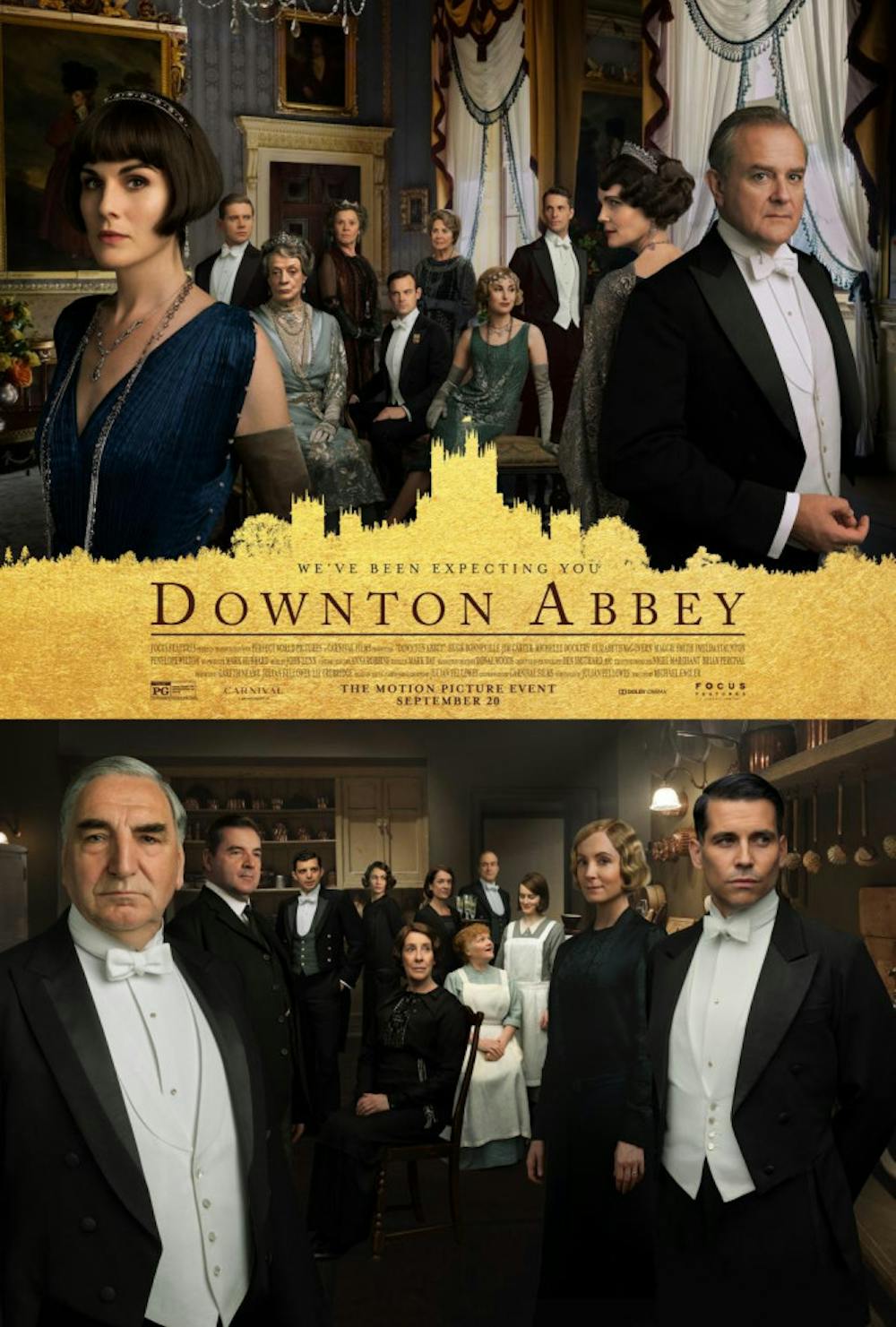“Downton Abbey” is a fantastic time at the movies. The film — a sequel to the hit PBS period piece of the same name — showcases sharp dialogue, fine acting and deft period-design from director Michael Engler. From start to end, “Downton Abbey” (the movie) remains frothy; Engler’s film definitely lacks the cinematic aspirations of “Boyhood” (2014) or “The Revenant” (2015). But “Downton Abbey,” unlike those films, is actually fun to watch.
The Downton Abbey movie opens in 1927, two years after the show’s end. Robert Crawley, seventh Earl of Grantham (Hugh Bonneville) raises his eyebrows upon receiving a letter. “The King and Queen are visiting Downton,” he murmurs. Soon enough, we learn that the Earl is not referring to Elvis Presley and the “Bohemian Rhapsody” guys; instead, Downton must host King George V of England and his wife, Mary.
Complications ensue. The current head butler (Rob James-Collier) cannot quite manage the royal visit, for one. To make matters worse, the royal household’s domestic staff will conduct the king’s luncheon and dinner, undermining Downton’s own staff. To solve this mess, the Crawleys reach out to their butler emeritus, Mr. Carson (Jim Carter).
“Leave this to me,” Carson snarls. He puts on a tabby striped suit and walks down the road to Downton Abbey, his stern physique silhouetted by an English sunrise. This shot, like many others in this film, envelops the screen with the rich beauty of Northern England. Yorkshire essentially becomes a character in and of itself.
Other storylines come up in “Downton Abbey,” but a Downton layman should not worry — none of the subplots particularly matter. There is some business about an ingénue/maid (Tuppence Middleton) who catches the eye of Tom Branson (Allen Leech), the earl’s son-in-law. Meanwhile, the future of Downton must be decided by the household’s matriarch, Lady Violet (Dame Maggie Smith).
Maggie Smith’s acting alone makes “Downton Abbey” worth watching. The Scottish actress throws around zingers like nobody’s business. “Machiavelli is frequently underrated; he had many qualities,” Lady Violet quips at one point. Is Smith’s performance a rehash of her role as Professor McGonogall? Well, sort of. But Smith still rules.
Despite its strong acting and dialogue, “Downton Abbey” has a few parts that rocket beyond the stratosphere of the silly and into the cosmos of the misguided. There is a story arc wherein Downton inhabitants must foil a plot to kill the king (Simon Jones). The section reaches a climax when two men brawl over a pistol while, only five yards away, an unaware George V inspects his troops. Thankfully, Lady Mary (Michelle Dockery) emerges from behind a hedge and karate-chops the would-be assassin.
“Downton Abbey” is not “John Wick” (2014). The gunplay scene was so incongruous with the rest of the film that one wonders if Engler added the assasination storyline to simply beef up the movie’s runtime.
Even stranger is when the Downton staff must go to war with the royal domestics. The household’s cooks and maids use sleeping pills, fake telephone calls and outright abduction to ensure that only Downton workers can serve the King’s soup. When Lord Grantham learns about all the trickery from downstairs, he expresses his gratitude. After all, his staff is defending Downton’s honor — or something. If “Downton Abbey” took place on Earth, Lord Grantham would probably demand resignations, or maybe even go so far as to call the Yorkshire constabulary.
But these are minor quibbles. In what other film does one get to hear: “The day has dawned and the weather proves conclusively that God is a monarchist?” What other movie currently running in theaters features a kleptomaniac dressmaker? “Downton Abbey” might be a guilty pleasure, but the film is undeniably well-done. Give the movie a shot — you will feel quite at home during your stay at Downton.
Reel Critic: 'Downton Abbey'

Comments



